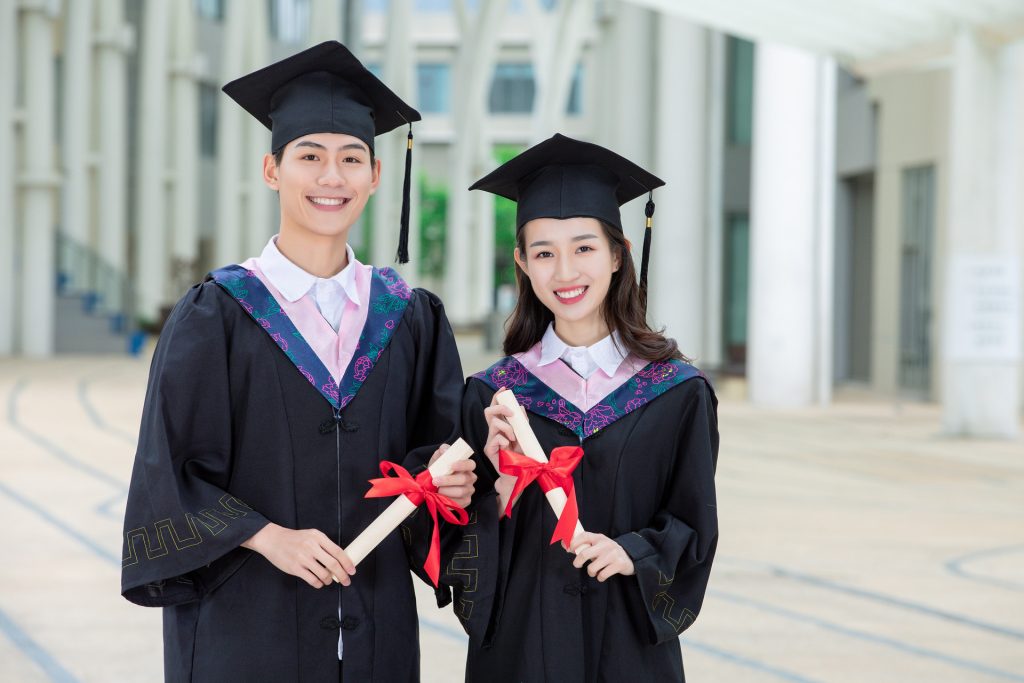Studying artificial intelligence (AI) in China offers several compelling advantages, ranging from academic excellence to abundant research opportunities and a thriving tech industry. Here are the key reasons why it is a good idea to pursue AI studies in China:
- China is home to several prestigious universities known for their strong computer science and engineering programs, such as Tsinghua University, Peking University, and Shanghai Jiao Tong University. (Most of these top universities of Chinese-taught AI programs)
- Chinese universities are heavily invested in AI research, often collaborating with leading tech companies and government initiatives to drive innovation.
- Cities like Beijing, Shanghai, and Shenzhen are global tech hubs where leading AI companies, such as Baidu, Alibaba, Tencent, and Huawei, are based.
- Strong partnerships between universities and the tech industry provide students with opportunities for internships, practical projects, and exposure to real-world AI applications.
- AI is a key component of China’s national development strategy, with substantial government funding and support aimed at making China a global leader in AI by 2030.
- Government initiatives provide significant research funding for AI projects, fostering an environment of innovation and discovery.
- China’s large population and digital ecosystem provide vast amounts of data, essential for training and developing AI models.
- The rapid adoption of new technologies in China creates a dynamic environment for AI experimentation and deployment.
- The rapid growth of the AI industry in China has led to a high demand for skilled professionals, offering excellent job prospects for graduates.
- China’s supportive environment for startups provides opportunities for aspiring entrepreneurs to launch AI-related ventures.
- Chinese universities often collaborate with international institutions, providing a global perspective on AI research and development.
- Studying in China offers the chance to interact with a diverse group of students and professionals from around the world.
- Tuition fees in Chinese universities are often more affordable compared to Western institutions, without compromising on the quality of education.
- Numerous scholarships are available for international students, including those offered by the Chinese government and individual universities.
English Language Requirement
If you’re planning to study an English-taught program in China, you’ll generally need to meet specific English language requirements. These requirements can vary by university and program, but here are the typical requirements you might encounter:
Common English Language Tests and Minimum Scores
- TOEFL (Test of English as a Foreign Language)
- iBT (Internet-Based Test): Generally, a minimum score of 80-100 is required.
- PBT (Paper-Based Test): Some programs may accept a minimum score of 550-600.
- IELTS (International English Language Testing System)
- Academic Module: Typically, a minimum overall band score of 6.0-7.0 is required.
- Cambridge English Exams
- Cambridge English: Advanced (CAE): Often accepted with a minimum score of 180.
- Cambridge English: Proficiency (CPE): Some programs may accept this with a minimum score of 200.
- PTE Academic (Pearson Test of English Academic)
- A minimum score of 60-70 is commonly required.
- Duolingo English Test
- Increasingly accepted, with a typical minimum score around 105-120.
University-Specific Requirements
Different universities might have their own specific requirements. Here are a few examples from top universities in China:
- Tsinghua University
- TOEFL iBT: Minimum score of 90.
- IELTS: Minimum overall band score of 6.5.
- Peking University
- TOEFL iBT: Minimum score of 100.
- IELTS: Minimum overall band score of 7.0.
- Shanghai Jiao Tong University
- TOEFL iBT: Minimum score of 90.
- IELTS: Minimum overall band score of 6.5.
- Zhejiang University
- TOEFL iBT: Minimum score of 90.
- IELTS: Minimum overall band score of 6.5.
- University of Science and Technology of China (USTC)
- TOEFL iBT: Minimum score of 80.
- IELTS: Minimum overall band score of 6.0.
Exemptions and Waivers
- Applicants from countries where English is the official language or who have completed their previous degree in English-speaking countries may be exempted from providing these test scores.
- Some universities may waive the English test requirement if you have completed your prior education in an English-medium institution. Typically, a letter from your previous institution confirming English as the language of instruction is required.
Chinese Universities Offering English Taught AI Programs
Several Chinese universities offer English-taught programs in Artificial Intelligence (AI) for international students. Here are some of the top universities that provide such programs in 2024:
Note: We would like to inform you know that we are authorized to provide Study in China counseling services for each of the universities mentioned in this article at the application stage as well as the period of time starting from being accepted until your arrival in China.
| University | City | Tuition(RMB/year) | Tuition(USD/year) |
|---|---|---|---|
| Donghua University | Shanghai | 37000 | 5208 |
| Harbin Engineering University | Harbin | 22000 | 3097 |
| Liaoning Petrochemical University | Fushun | 16000 | 2252 |
| Nanjing University of Aeronatics and Astronautics | Nanjing | 23900 | 3364 |
| Nantong University | Nantong | 16000 | 2252 |
| Ocean University of China | Qingdao | 31000 | 4363 |
| Shandong University | Jinan | 34000 | 4786 |
| Shanghai University of Engineering Science | Shanghai | 20000 | 2815 |
| Southeast Univesity | Nanjing | 33000 | 4645 |
| Zhejiang University of Science and Technology | Hangzhou | 18000 | 2534 |
| Zhengzhou University | Zhengzhou | 43000 | 6052 |
Hangzhou
Studying Artificial Intelligence (AI) in Hangzhou, known for its vibrant tech scene and picturesque surroundings, can offer you excellent educational opportunities. Here’s a guide to studying AI in Hangzhou:
- The curriculum typically covers core subjects such as programming, algorithms, mathematics, statistics, machine learning, deep learning, natural language processing, and computer vision.
- Hangzhou is home to numerous tech companies, startups, and innovation hubs, offering abundant internship opportunities in AI and related fields.
- Take advantage of Hangzhou’s cultural attractions, including the picturesque West Lake, historical temples, tea plantations, and vibrant shopping streets.
- Immerse yourself in Hangzhou’s rich cultural heritage while pursuing your AI studies.
- Hangzhou’s cost of living is generally lower than that of major cities like Beijing or Shanghai, making it more affordable for students.
- Chinese Government Scholarships and university-specific scholarships may be available for international students pursuing AI programs in Hangzhou.
Harbin
Studying Artificial Intelligence (AI) in Harbin offers unique opportunities within China’s academic landscape. While Harbin may not be as internationally recognized as cities like Beijing or Shanghai, it boasts several reputable universities with strong programs. Here’s a guide to studying AI in Harbin:
- The curriculum typically covers core subjects such as programming, algorithms, mathematics, statistics, machine learning, deep learning, natural language processing, and computer vision.
- While Harbin may not be as prominent as tech hubs like Beijing or Shenzhen, it still offers internship opportunities with local tech companies and startups.
- Harbin is known for its rich history, cultural heritage, and unique blend of Chinese and Russian influences.
- Harbin generally has a lower cost of living compared to larger Chinese cities like Beijing or Shanghai.
- Chinese Government Scholarships and university-specific scholarships may be available for international students.
Jinan
Studying Artificial Intelligence (AI) in Jinan, the capital city of Shandong Province, China, offers a range of educational opportunities within a dynamic academic environment. Here’s a guide to studying AI in Jinan:
- The curriculum typically covers fundamental subjects such as programming, algorithms, mathematics, statistics, machine learning, deep learning, natural language processing, and computer vision.
- Universities in Jinan emphasize hands-on projects and research experiences to apply theoretical knowledge in practical settings.
- Jinan has a growing technology industry, with companies ranging from established firms to startups focusing on AI and related fields.
- Jinan boasts a rich cultural heritage, with historical sites, museums, parks, and traditional cuisine awaiting exploration.
- Jinan generally offers a lower cost of living compared to larger cities like Beijing or Shanghai, making it more affordable for students.
- Chinese Government Scholarships and university-specific scholarships may be available for international students pursuing AI programs in Jinan.
Nanjing
Studying Artificial Intelligence (AI) in Nanjing, a city with a rich history and a growing technology sector, can offer you excellent educational opportunities. Here’s a guide to studying AI in Nanjing:
- The curriculum typically covers core subjects such as programming, algorithms, mathematics, statistics, machine learning, deep learning, natural language processing, and computer vision.
- Universities in Nanjing emphasize practical projects and research opportunities to apply theoretical knowledge in real-world scenarios.
- Nanjing has a burgeoning tech industry with companies like Huawei, Alibaba, and Lenovo having a presence in the city.
- Nanjing, with its rich history and cultural heritage, offers a unique cultural experience. Explore historical sites, museums, and parks, and immerse yourself in the local cuisine and traditions.
- Nanjing generally has a lower cost of living compared to larger Chinese cities like Beijing or Shanghai.
- Chinese Government Scholarships and university-specific scholarships may be available for international students.
Shanghai
Studying Artificial Intelligence (AI) in Shanghai can be an excellent choice due to the city’s vibrant academic environment, thriving tech industry, and cultural richness. Here’s a guide to studying AI in Shanghai:
- Core subjects typically include programming, algorithms, mathematics, statistics, machine learning, deep learning, natural language processing, computer vision, and robotics.
- Practical projects and internships are often integrated into the curriculum to provide hands-on experience.
- Shanghai is home to numerous tech companies and startups, including Alibaba, Tencent, Baidu, and more.
- Shanghai offers a rich cultural experience with its blend of traditional Chinese culture and modern cosmopolitan lifestyle.
- While the universities mentioned in this article offer English-taught programs, learning basic Mandarin can enhance your experience living in Shanghai and interacting with locals.
- Chinese Government Scholarships and university-specific scholarships may be available for international students.


